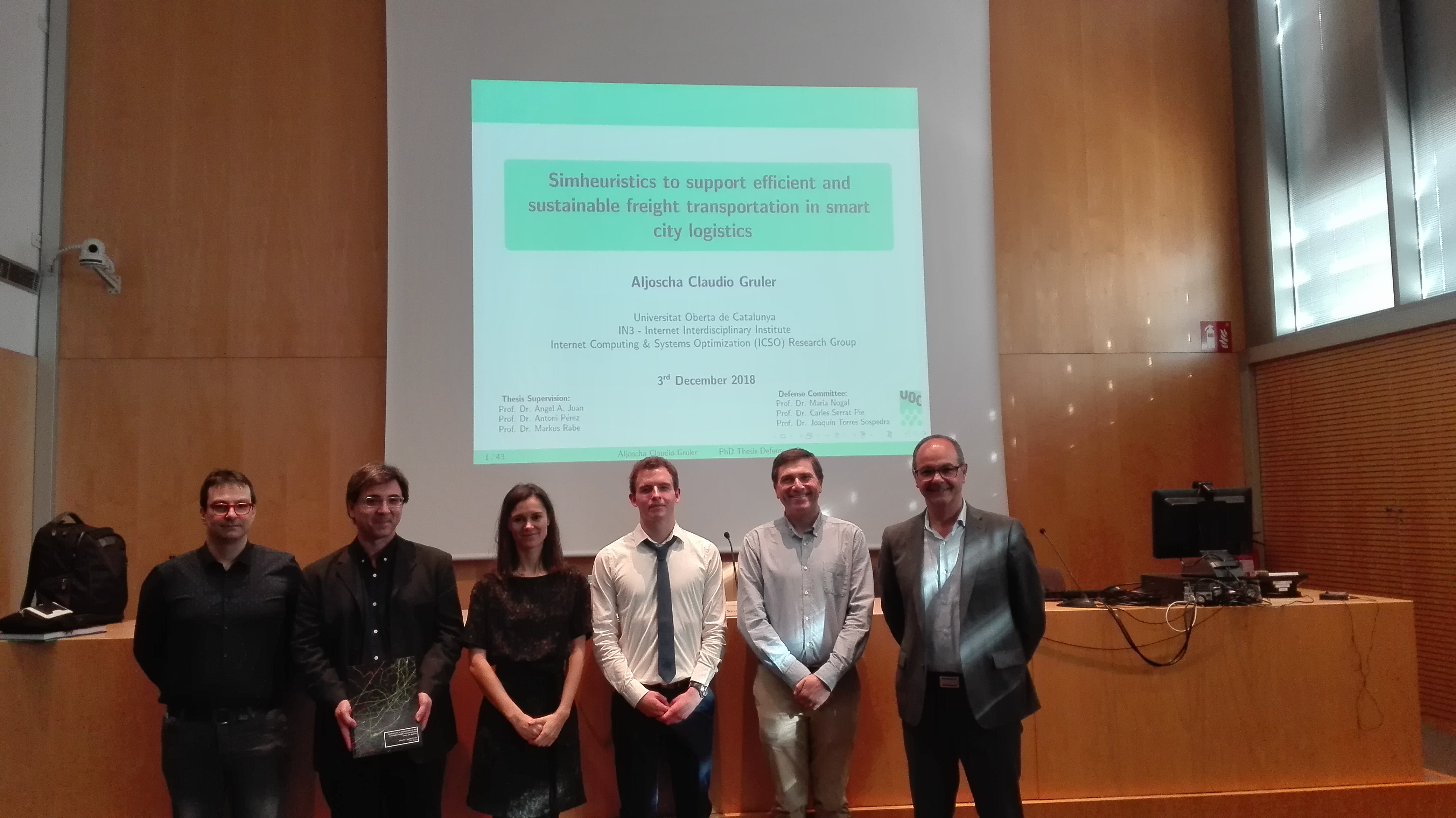
Author: Aljoscha Claudio Gruler
Programme: Doctoral Programme in Network and Information Technologies
Language: English
Supervisors: Dr. Ángel Alejandro Juan Pérez and Dr. Antoni Pérez Navarro
Faculty / Institute: Doctoral School UOC
Subjects: Computer Science
Key words: simheuristics, metaheuristics, optimization, simulation, smart cities, transportation
Area of knowledge: Network and Information Technologies
Summary
Smart city logistics are a crucial factor in the creation of efficient and sustainable urban transportation systems. Among other factors, they focus on incorporating real-time data and creating collaborative business models in urban freight transportation concepts, whilst also considering rising urban population numbers, increasingly complex customer demands, and highly competitive markets. This allows transportation planners to minimize the monetary and environmental costs of freight transportation in metropolitan areas. Many decision-making problems faced in this context can be formulated as combinatorial optimization problems. While different exact solving approaches exist to find optimal solutions to such problems, their complexity and size, in addition to the need for instantaneous decision-making regarding vehicle routing, scheduling, or facility location, make such methodologies inapplicable in practice. Due to their ability to find pseudo-optimal solutions in almost real time, metaheuristic algorithms have received increasing attention from researchers and practitioners as efficient and reliable alternatives in solving numerous optimization problems in the creation of smart city logistics. Despite their success, traditional metaheuristic techniques fail to fully represent the complexity of most realistic systems. By assuming deterministic problem inputs and constraints, the uncertainty and dynamism experienced in urban transportation scenarios are left unaccounted for. Simheuristic frameworks try to overcome these drawbacks by integrating any type of simulation into metaheuristic-driven processes to account for the inherent uncertainty in most real-life applications. This thesis defines and investigates the use of simheuristics as a method of first resort for solving optimization problems arising in smart city logistics concepts. Simheuristic algorithms are applied to a range of complex problem settings including urban waste collection, integrated supply chain design, and innovative transportation models related to horizontal collaboration among supply chain partners. In addition to methodological discussions and the comparison of developed algorithms to state-of-the-art benchmarks found in the academic literature, the applicability and efficiency of simheuristic frameworks in different large-scaled case studies are shown.
